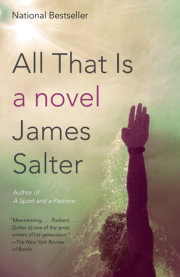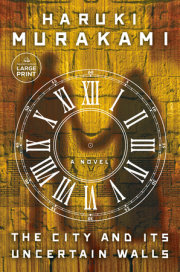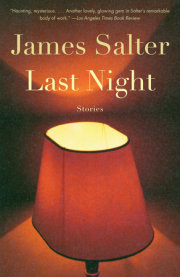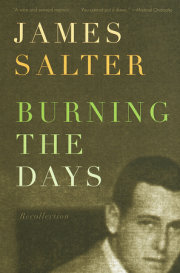Chapter 1
Break of Day
All night in darkness the water sped past.
In tier on tier of iron bunks below deck, silent, six deep, lay hundreds of men, many face-up with their eyes still open though it was near morning. The lights were dimmed, the engines throbbing endlessly, the ventilators pulling in damp air, fifteen hundred men with their packs and weapons heavy enough to take them straight to the bottom, like an anvil dropped in the sea, part of a vast army sailing towards Okinawa, the great island that was just to the south of Japan. In truth, Okinawa was Japan, part of the homeland, strange and unknown. The war that had been going on for three and a half years was in its final act. In half an hour the first groups of men would file in for breakfast, standing as they ate, shoulder to shoulder, solemn, unspeaking. The ship was moving smoothly with faint sound. The steel of the hull creaked.
The war in the Pacific was not like the rest of it. The distances alone were enormous. There was nothing but days on end of empty sea and strange names of places, a thousand miles between them. It had been a war of many islands, of prying them from the Japanese, one by one. Guadalcanal, which became a legend. The Solomons and the Slot. Tarawa, where the landing craft ran aground on reefs far from shore and the men were slaughtered in enemy fire dense as bees, the horror of the beaches, swollen bodies lolling in the surf, the nation’s sons, some of them beautiful.
In the beginning with frightening speed the Japanese had overrun everything, all of the Dutch East Indies, Malaya, the Philippines. Great strongholds, deep fortifications known to be impregnable, were swept over in a matter of days. There had been only one counter stroke, the first great carrier battle in the middle of the Pacific, near Midway, where four irreplaceable Japanese carriers went down with all their planes and veteran crews. A staggering blow, but still the Japanese were relentless. Their grip on the Pacific would have to be broken finger by iron finger.
The battles were endless and unpitying, in dense jungle and heat. Near the shore, afterwards, the palms stood naked, like tall stakes, every leaf shot away. The enemy were savage fighters, the strange pagoda-like structures on their warships, their secret hissing language, their stockiness and ferocity. They did not surrender. They fought to the death. They executed prisoners with razor swords, two-handed swords raised high overhead, and they were merciless in victory, arms thrust aloft in mass triumph.
By 1944, the great, final stages had begun. Their object was to bring the Japanese homeland within range of heavy bombers. Saipan was the key. It was large and heavily defended. The Japanese army had not been defeated in battle, disregarding the outposts—New Guinea, the Gilberts, places such as that—for more than 350 years. There were twenty-five thousand Japanese troops on the island of Saipan commanded to yield nothing, not an inch of ground. In the order of earthly things, the defense of Saipan was deemed a matter of life and death.
In June, the invasion began. The Japanese had dangerous naval forces in the area, heavy cruisers and battleships. Two marine divisions went ashore and an army division followed.
It became, for the Japanese, the Saipan disaster. Twenty days later, nearly all of them had perished. The Japanese general and also Admiral Nagumo, who had commanded at Midway, committed suicide, and hundreds of civilians, men and women terrified of being slaughtered, some of them mothers holding babies in their arms, leapt from the steep cliffs to their death on the sharp rocks below.
It was the knell. The bombing of the main islands of Japan was now possible, and in the most massive of the raids, a firebombing of Tokyo, more than eighty thousand people died in the huge inferno in a single night.
Next, Iwo Jima fell. The Japanese pronounced an ultimate pledge: the death of a hundred million, the entire population, rather than surrender.
In the path of it lay Okinawa.
Day was rising, a pale Pacific dawn that had no real horizon with the tops of the early clouds gathering light. The sea was empty. Slowly the sun appeared, flooding across the water and turning it white. A lieutenant jg named Bowman had come on deck and was standing at the railing, looking out. His cabinmate, Kimmel, silently joined him. It was a day Bowman would never forget. Neither would any of them.
“Anything out there?”
“Nothing.”
“Not that you can see,” Kimmel said.
He looked forward, then aft.
“It’s too peaceful,” he said.
Bowman was navigation officer and also, he had learned just two days earlier, lookout officer.
“Sir,” he had asked, “what does that entail?”
“Here’s the manual,” the exec said. “Read it.”
He began that night, turning down the corner of certain pages as he read.
“What are you doing?” Kimmel asked.
“Don’t bother me right now.”
“What are you studying?”
“A manual.”
“Jesus, we’re in the middle of enemy waters and you’re sitting there reading a manual? This is no time for that. You’re supposed to already know what to do.”
Bowman ignored him. They had been together from the beginning, since midshipman’s school, where the commandant, a navy captain whose career had collapsed when his destroyer ran aground, had a copy of A Message to Garcia, an inspirational text from the Spanish-American War, placed on every man’s bunk. Captain McCreary had no future but he remained loyal to the standards of the past. He drank himself into a stupor every night but was always crisp and well-shaved in the morning. He knew the book of navy regulations by heart and had bought the copies of A Message to Garcia with money from his own pocket. Bowman had read the Message carefully, years later he could still recite parts of it. Garcia was somewhere in the mountain vastness of Cuba—no one knew where . . . The point was simple: Do your duty fully and absolutely without unnecessary questions or excuses. Kimmel had cackled as he read it.
“Aye, aye, sir. Man the guns!”
He was dark-haired and skinny and walked with a loose gait that made him seem long-legged. His uniform always looked somehow slept in. His neck was too thin for his collar. The crew, among themselves, called him the Camel, but he had a playboy’s aplomb and women liked him. In San Diego he had taken up with a lively girl named Vicky whose father owned a car dealership, Palmetto Ford. She had blond hair, pulled back, and a touch of daring. She was drawn to Kimmel immediately, his indolent glamour. In the hotel room that he had gotten with two other officers and where, he explained, they would be away from the noise of the bar, they sat drinking Canadian Club and Coke.
“How did it happen?” he asked.
“How did what happen?”
“My meeting someone like you.”
“You certainly didn’t deserve it,” she said.
He laughed.
“It was fate,” he said.
She sipped her drink.
“Fate. So, am I going to marry you?”
“Jesus, are we there already? I’m not old enough to get married.”
“You’d probably only deceive me about ten times in the first year,” she said.
“I’d never deceive you.”
“Ha ha.”
She knew exactly what he was like, but she would change that. She liked his laugh. He’d have to meet her father first, she commented.
“I’d love to meet your father,” Kimmel answered in seeming earnestness. “Have you told him about us?”
“Do you think I’m crazy? He’d kill me.”
“What do you mean? For what?”
“For getting pregnant.”
“You’re pregnant?” Kimmel said, alarmed.
“Who knows?”
Vicky Hollins in her silk dress, the glances clinging to her as she passed. In heels she wasn’t that short. She liked to call herself by her last name. It’s Hollins, she would announce on the phone.
They were shipping out, that was what made it all real or a form of real.
“Who knows if we’ll get back,” he said casually.
Her letters had come in the two sackfuls of mail that Bowman had brought back from Leyte. He’d been sent there by the exec to try and find the ship’s mail at the Fleet Post Office—they’d had none for ten days—and he had flown back with it, triumphant, in a TBM. Kimmel read parts of her letters aloud for the benefit, especially, of Brownell, the third man in the cabin. Brownell was intense and morally pure, with a knotted jaw that had traces of acne. Kimmel liked to bait him. He sniffed at a page of the letter. Yeah, that was her perfume, he said, he’d recognize it anywhere.
“And maybe something else,” he speculated. “I wonder. You think she might have rubbed it against her . . . Here,” he said, offering it to Brownell, “tell me what you think.”
“I wouldn’t know,” Brownell said uneasily. The knots in his jaw showed.
“Oh, sure you would, an old pussy hound like you.”
“Don’t try and involve me in your lechery,” Brownell said.
“It’s not lechery, she’s writing to me because we fell in love. It’s something beautiful and pure.”
“How would you know?”
Brownell was reading The Prophet.
“The Prophet. What’s that?” Kimmel said. “Let me see it. What does it do, tell us what’s going to happen?”
Brownell didn’t answer.
The letters were less exciting than a page filled with feminine handwriting would suggest. Vicky was a talker and her letters were a detailed and somewhat repetitive account of her life, which consisted in part of going back to all the places she and Kimmel had been to, usually in the company of Susu, her closest friend, and also in the company of other young naval officers, but thinking always of Kimmel. The bartender remembered them, she said, a fabulous couple. Her closings were always a line from a popular song. I didn’t want to do it, she wrote.
Bowman had no girlfriend, faithful or otherwise. He’d had no experience of love but was reluctant to admit it. He simply let the subject pass when women were discussed and acted as though Kimmel’s dazzling affair was more or less familiar ground to him. His life was the ship and his duties aboard. He felt loyalty to it and to a tradition that he respected, and he felt a certain pride when the captain or exec called out, “Mr. Bowman!” He liked their reliance, offhanded though it might be, on him.
He was diligent. He had blue eyes and brown hair combed back. He’d been diligent in school. Miss Crowley had drawn him aside after class and told him he had the makings of a fine Latinist, but if she could see him now in his uniform and sea-tarnished insignia, she would have been very impressed. From the time he and Kimmel had joined the ship at Ulithi, he felt he had performed well.
How he would behave in action was weighing on his mind that morning as they stood looking out at the mysterious, foreign sea and then at the sky that was already becoming brighter. Courage and fear and how you would act under fire were not among the things you talked about. You hoped, when the time came, that you would be able to do as expected. He had faith, if not complete, in himself, then in the leadership, the seasoned names that guided the fleet. Once, in the distance he had seen, low and swift-moving, the camouflaged flagship, the New Jersey, with Halsey aboard. It was like seeing, from afar, the Emperor at Ratisbon. He felt a kind of pride, even fulfillment. It was enough.
The real danger would come from the sky, the suicide attacks, the kamikaze—the word meant “divine wind,” the heaven-sent storms that had saved Japan from the invasion fleet of Kublai Khan centuries before. This was the same intervention from on high, this time by bomb-laden planes flying directly into the enemy ships, their pilots dying in the act.
The first such attack had been in the Philippines a few months earlier. A Japanese plane dove into a heavy cruiser and exploded, killing the captain and many more. From then on the attacks multiplied. The Japanese would come in irregular groups, appearing suddenly. Men watched with almost hypnotic fascination and fear as they came straight down towards them through dense antiaircraft fire or swept in low, skimming the water. To defend Okinawa the Japanese had planned to launch the greatest kamikaze assault of all. The loss of ships would be so heavy that the invasion would be driven back and destroyed. It was not just a dream. The outcome of great battles could hinge on resolve.
Through the morning, though, there was nothing. The swells rose and slid past, some bursting white, spooling out and breaking backwards. There was a deck of clouds. Beneath, the sky was bright.
The first warning of enemy planes came in a call from the bridge, and Bowman was running to his cabin to get his life jacket when the alarm for General Quarters sounded, overwhelming everything else, and he passed Kimmel in a helmet that looked too big for him racing up the steel steps crying, “This is it! This is it!” The firing had started and every gun on the ship and on those nearby took it up. The sound was deafening. Swarms of antiaircraft fire were floating upwards amid dark puffs. On the bridge the captain was hitting the helmsman on the arm to get him to listen. Men were still getting to their stations. It was all happening at two speeds, the noise and desperate haste of action and also at a lesser speed, that of fate, with dark specks in the sky moving through the gunfire. They were distant and it seemed the firing could not reach them when suddenly something else began, within the din a single dark plane was coming down and like a blind insect, unerring, turning towards them, red insignia on its wings and a shining black cowling. Every gun on the ship was firing and the seconds were collapsing into one another. Then with a huge explosion and geyser of water the ship lurched sideways beneath their feet—the plane had hit them or just alongside. In the smoke and confusion no one knew.
“Man overboard!”
“Where?”
“Astern, sir!”
It was Kimmel who, thinking the magazine amidship had been hit, had jumped. The noise was still terrific, they were firing at everything. In the wake of the ship and trying to swim amid the great swells and pieces of wreckage, Kimmel was vanishing from sight. They could not stop or turn back for him. He would have drowned but miraculously he was seen and picked up by a destroyer that was almost immediately sunk by another kamikaze and the crew rescued by a second destroyer that, barely an hour later, was razed to the waterline. Kimmel ended up in a naval hospital. He became a kind of legend. He’d jumped off his ship by mistake and in one day had seen more action than the rest of them would see in the entire war. Afterwards, Bowman lost track of him. Several times over the years he tried to locate him in Chicago but without any luck. More than thirty ships were sunk that day. It was the greatest ordeal of the fleet during the war.
Copyright © 2013 by James Salter. All rights reserved. No part of this excerpt may be reproduced or reprinted without permission in writing from the publisher.







































































































